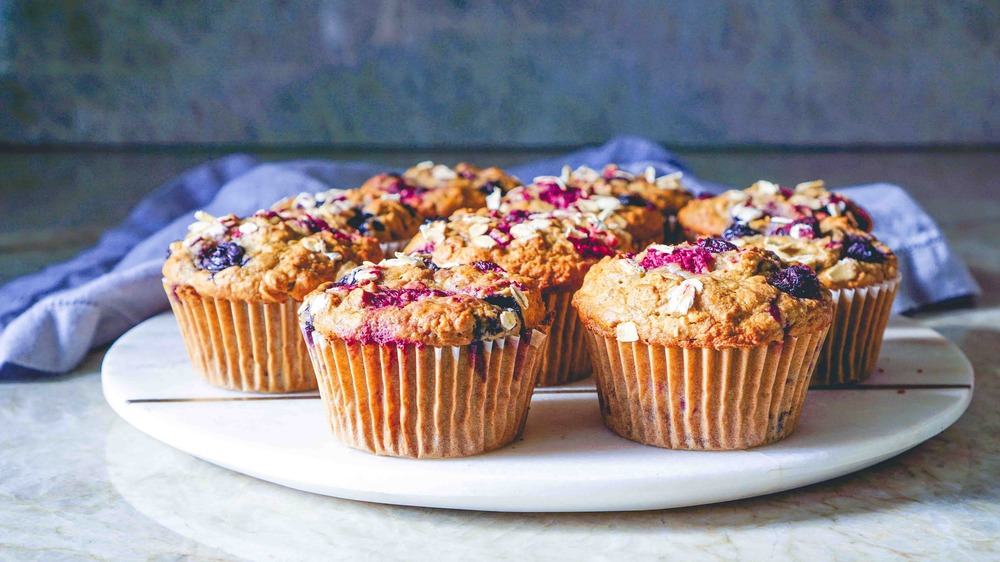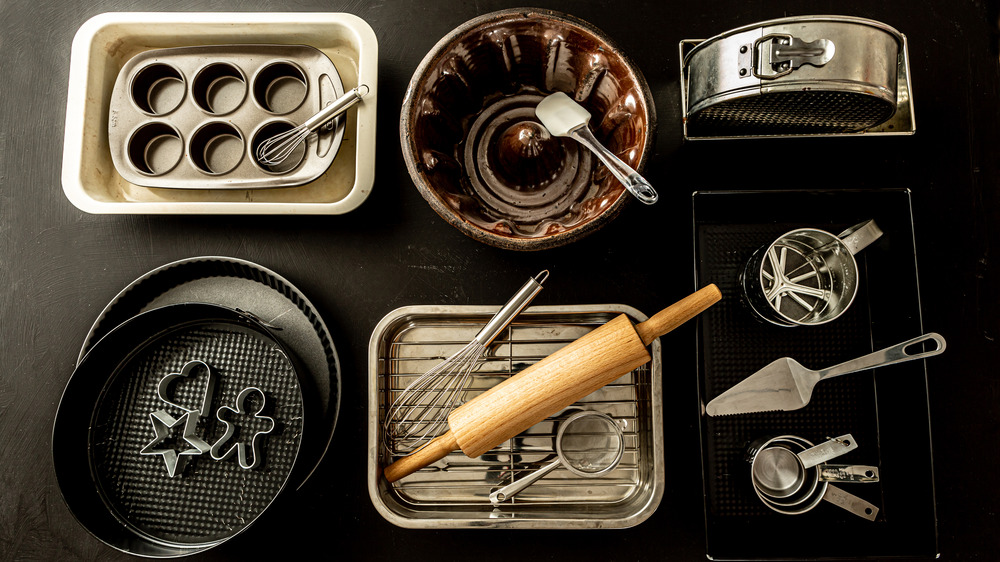Glass Vs. Metal: Which Is Better For Baking?
If you are someone who really enjoys baking and seem to be whipping up treats like cake, muffins, and cookies often, it might be time to consider investing in better tools. However, the many options of bakeware available can be confusing and make it harder to identify what's best. This is especially true if you are concerned with the material's conduction of heat so that the baked good cooks evenly.
There are some benefits to glass, however, they typically don't outweigh the benefits metal bakeware has to offer. Glass doesn't absorb aromatics and it also retains heat really well once it has reached the temperature you need it to (via Taste of Home). That's why glass is great for dishes like casseroles and lasagna, according to Bon Appétit. However, glass isn't as good for baked goods because it can cause the outside to cook faster than the interior, which means that you'll end up with something that is dry and hard around the exterior. Though both Taste of Home and Bon Appétit recommend lowering the oven by 25 degrees to prevent this from happening, you would still be better off using metal bakeware if you have the option to choose.
The benefits of metal
Metal bakeware, on the other hand, is great for baked goods and bread — even pies — making it much more versatile than glass. Beginner bakers might be more comfortable with a glass pie dish as an exception, according to Bon Appétit, though. Overall, however, metal allows heat to pass through to the food very efficiently, which means your food will cook more evenly and you won't have the same issue of an overcooked exterior that glass can cause. Another bonus for metal bakeware is that it won't break or shatter like glass will, particularly when it encounters sudden temperature changes.
One thing to consider with metal bakeware is that the finish or appearance of the metal matters. The darker the finish the more quickly the metal will heat up and the more heat it will retain. So bakeware that is darker will cook faster and can over-bake if you aren't careful or watching it closely. Lighter pans cook more slowly and are a better option for bakes that could burn easily. The same is true of a shiny finish instead of a matte one. Matte finishes cause food to bake faster too, according to Taste of Home.
To keep things simple, Bon Appétit's recipe editor Liesel Davis has trick to understanding when to use glass instead of metal. The rule is "If a recipe calls for a 'dish,' that typically means glass or ceramic; if it calls for a 'pan' or 'tin,' go with metal."

